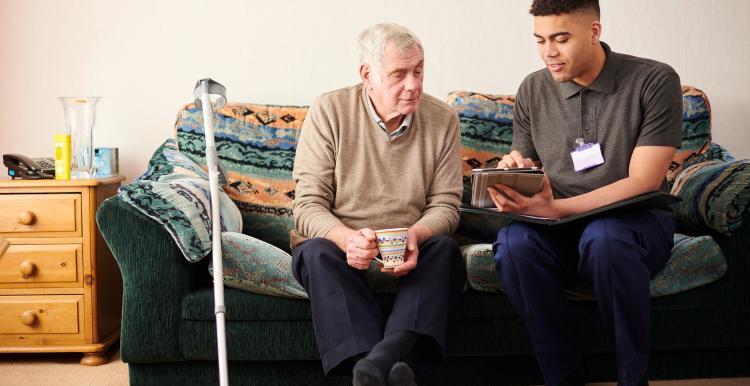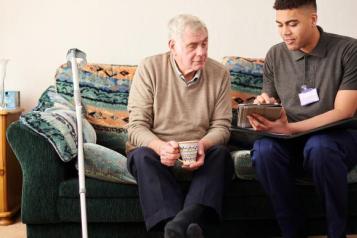Community Services at Breaking Point and Rise in Hospital Readmissions

This year’s findings are especially significant, as they serve as an early test of the Government’s ability to deliver the ambitious promises laid out in the Ten Year Health Plan. The report highlights critical concerns around capacity in community services and the impact of poor hospital discharge processes on vulnerable people.
Click here to download the latest CQC State of Care Report
The Urgent Need for Community Investment
The Government’s strategy is heavily reliant on shifting care away from hospitals and into local communities. However, the CQC warns that this ambition is at serious risk. Without substantial investment into both capacity and the capability to deliver this transformation, the most vulnerable groups in society will inevitably lose out.
This echoes concerns Healthwatch has heard from people across the country: while the principle of local, accessible care is welcomed, there are significant doubts about whether the system has the resources and infrastructure to make it a reality.
Mental Health Waits: Approaching the Crisis Point
The pressure on community services is starkly visible in mental health care.
According to the CQC’s survey, a concerning 14% of patients referred for community support are waiting longer than six months between their initial assessment and their first appointment. Patients rarely seek help at the first signs of an issue; many only reach out when they are already approaching a crisis. Facing a further six-month wait for support at that stage can have severe and life-altering consequences.
The Rise of Emergency Readmissions
The challenges don’t end when people leave the hospital. The CQC’s analysis of hospital discharge processes reveals a steady and worrying rise in emergency readmissions—patients returning to hospital within 30 days of being discharged. This now accounts for 14.8% of all emergency admissions.
The data shows that older people and those living in areas of higher deprivation are the most likely to experience a rapid readmission. When discharge processes fail, the consequences can be severe for the patient, creating distress and unnecessarily straining hospital resources.
A collaborative report by National Voices, produced alongside the CQC, further examined the lived experience of those affected by poor discharge. While most people report positive experiences when leaving hospital, the report confirms that when things go wrong, the impact is severe.
What Does This Mean for Healthwatch?
These findings reinforce the importance of local Healthwatch work in two key areas:
- Community Care Capacity: We must continue to collect public feedback on the accessibility, quality, and effectiveness of local primary and community care services to ensure new investments are targeted where they are most needed.
- Safe Hospital Discharge: We must scrutinise local discharge pathways to ensure care transfers are well-coordinated and support is in place quickly to prevent unnecessary readmissions.
Have you or a loved one waited for community mental health support, or experienced an emergency readmission after leaving hospital? Share your experience with your local Healthwatch team today.



